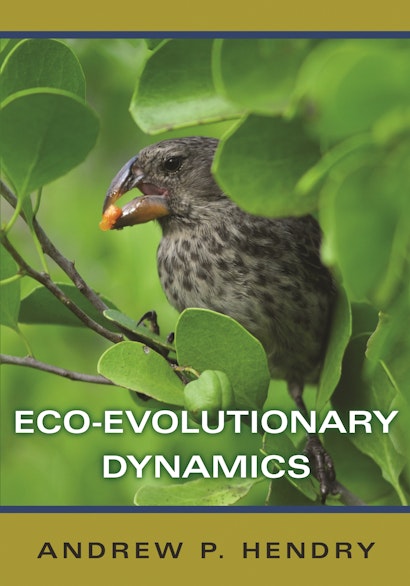Scientists are increasingly realizing that evolution can occur on timescales much shorter than the “long lapse of ages” that was emphasized by Darwin. In fact, evolutionary change is occurring all around us all the time. This book provides an authoritative and accessible introduction to eco-evolutionary dynamics, an exciting field that unifies evolution and ecology into a common conceptual framework focusing on rapid and dynamic ecological and evolutionary change. Topics range from natural selection, adaptive divergence, ecological speciation, and gene flow to population and community dynamics, ecosystem function, plasticity, and genomics. An essential introduction for students and researchers alike, Eco-evolutionary Dynamics reveals how evolution and ecology interact on short timescales to shape the world around us.
Andrew P. Hendry is professor in the Department of Biology and the Redpath Museum at McGill University. He is the coeditor of Microevolution: Rate, Pattern, Process and Evolution Illuminated: Salmon and Their Relatives.
"This book gives comprehensive coverage, including classical (selection, adaptation, divergence), basic (gene flow, plasticity, ecosystem functions), and some recent (genomics) issues that are richly illustrated by simple, clear tables, and figures."—Conservation Biology
"Outstanding. . . . An excellent, and timely, synthesis of the growing body of work on interactions between ecology and evolution."—Andrew MacColl, Quarterly Review of Biology
"A useful reference for ecologists and evolutionary biologists at diverse career stages."—Eric P. Palkovacs, Ecology
"An excellent overview."—Fanie Pelletier, Nature Ecology and Evolution
"Thought-provoking."—Anna Kuparinen, Trends in Ecology and Evolution
"In the strict sense, 'eco-evolutionary dynamics' refers to feedback between genetic changes in populations and their ecological features such as abundance. Andrew Hendry treats this and much more in an authoritative introduction to a wide range of topics at the interface of evolutionary genetics and population ecology. Everyone interested in evolutionary ecology will find his book highly rewarding."—Douglas J. Futuyma, Stony Brook University, State University of New York

